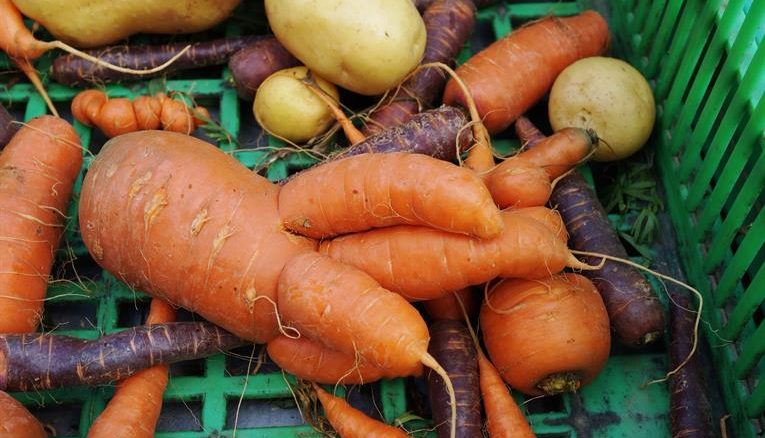
“You don’t eat with your eyes!”
Sound familiar? It’s a phrase uttered by many an exasperated parent at some point, as they tried in vain to get you to eat that last apple in the bowl, ever-so-slightly bruised.
Our fussy eating habits have seen a huge increase in food waste. According to StopFoodWaste.ie, set up by the Environmental Protection Agency, there is over one million tonnes of food waste disposed of each year in Ireland. Around 1/3 of this comes from households and means that, at home, each person is throwing out about 80kg of food waste each year. Sixty percent of this is classified as avoidable food waste.
This is merely a drop in the ocean – commercial businesses are said to generate 300,000 tonnes of organic waste, with each tonne of food costing between €2,000 and €5,000.
France has become the first country in the world to ban supermarkets from throwing away or destroying unsold food, forcing them instead to donate it to charities and food banks. Under the new law, large shops are no longer allowed to bin good quality food approaching its best-before date. Those behind the initial campaign for the legislation are now looking to bring the change to the whole of the European Union.
Ireland adopted a similar approach in the past. In late 2014, Tesco became the first retailer in the country to sell ‘Wonky Veg’ – irregularly shaped carrots and mushrooms which would normally be thrown away or used as animal feed. Fronted by model and cookbook author Rozanna Purcell, the initiative was welcomed by farmers.
“The reality of the situation is that the 5-10% of vegetables that never make it to the retail shelf are perfectly fine”, according to mushroom grower Leslie Codd, “They may look a little bit odd, or wonky, but they taste every bit as good as the perfect looking produce we are used to buying. If customers bought this wonky-looking veg more, it would greatly reduce wastage at farm level.”
English retailer Morrisons has also committed to changing the way businesses dispose of food waste. The company made its wonky veg range – which includes parsnips, potatoes and onions – permanent at the end of last year, at a discounted price.
The change was a complete 180 for the supermarket chain, following mounting pressure from celebrity chef Hugh Fearnley-Whittingstall. His BBC docu-series ‘Hugh’s War On Waste’ saw him hand out irregularly shaped parsnips outside a store to customers, highlighting supermarkets’ extremely particular aesthetic needs.
The chef was also critical of supermarket’s increased use of anaerobic digestion, where food waste is sent to plants in order to capture the gas released as it degrades, for use as electricity. The Sustainable Energy Authority of Ireland (SEAI) have recognised the potential anaerobic digestion technology in Ireland, awarding Limerick farmer David McDonnell a grant of €108,000 for his own alternative energy plant.
But surely it would just make sense to give hungry people food to give themselves energy? There are estimates that one in 10 people suffer from food poverty in Ireland alone.
Enter Foodcloud – a charity founded by Irish entrepreneurs Iseult Ward and Aoibheann O’Brien aiming to combat food waste. The company uses technology to connect companies with charities and redistribute excess food.
“We have a smartphone app and a website that allows businesses to put up details of what’s left at the end of the day and the time for collection,” says Ward. The app then generates a text message which it sends to local charities.
Ward was interviewed by The Irish Times in response to France’s action, saying that “establishing a scalable and sustainable model for redistribution of that surplus food has its challenges … There’s work to do to ensure the infrastructure is in place to support charities in availing of this food.”
In Cork, the Bia Food Initiative does something similar. Working with various retailers, it’s estimated that the organisation donates 1,000 meals a day to its charity partners. The company has now added depots in Galway and Dublin, and are also partnering with Origin Green, Ireland’s national sustainability programme. It’s unique in being the only sustainability programme that operates on a national scale.
Undoubtedly, Ireland is making huge advances when it comes to preventing increased food waste. Establishing forward-thinking food banks and sustainability programmes reflects the country’s progressiveness, but only time will tell if the new government will follow France’s lead.
Fionnuala Jones



Leave a Reply